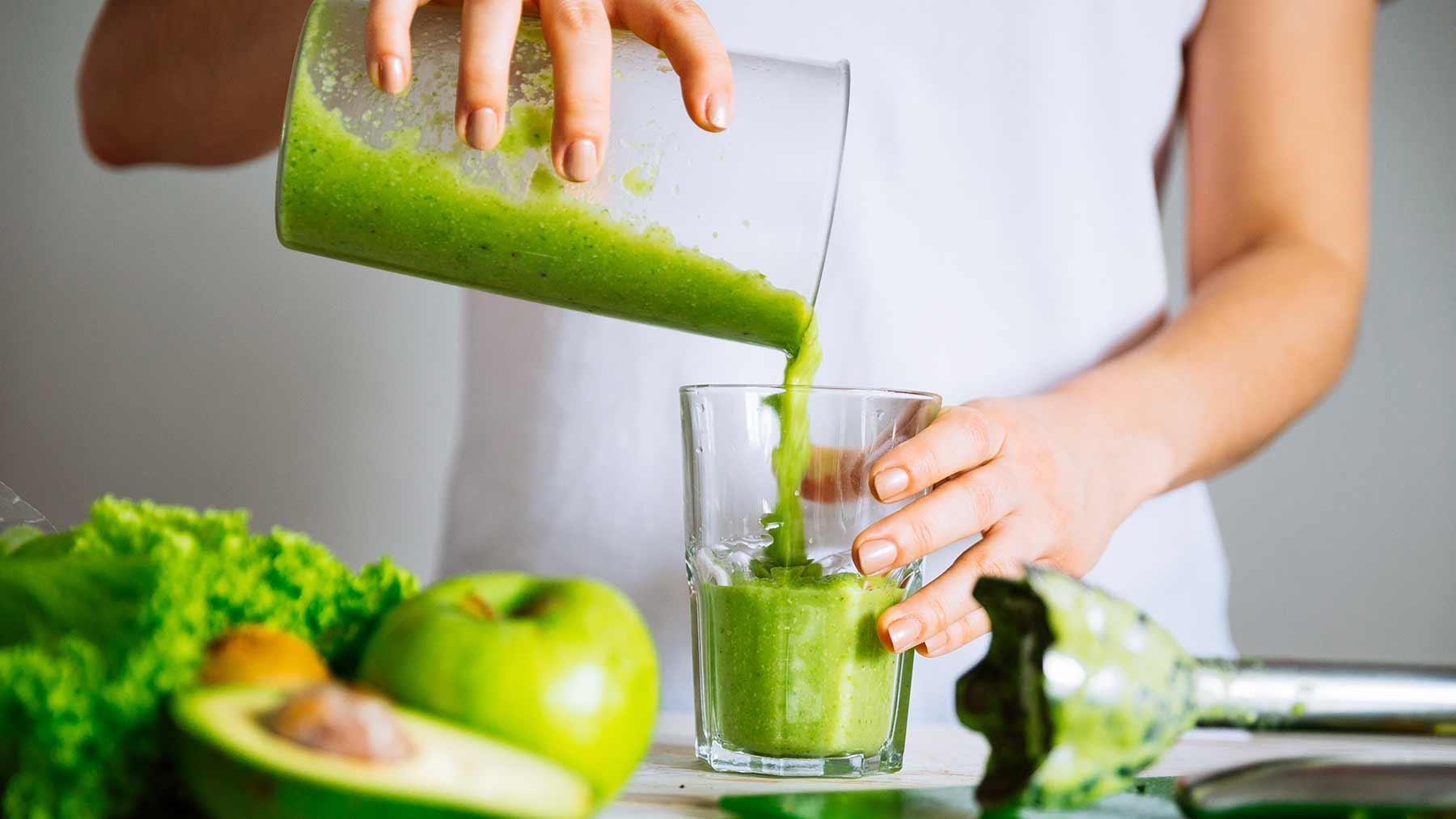Step into the world of vibrant colors and tantalizing flavors as we delve into the realm of juice cleanses. Bursting with promise and whispered tales of miraculous health benefits, juicing has gained immense popularity in recent years. From celebrities to health enthusiasts, everyone seems to swear by the magic of sipping on these vibrant elixirs. But, like any health trend, juice cleanses come with their fair share of advantages and disadvantages. In this article, we shall embark on a journey filled with juicy secrets and explore the pros and cons of juice cleanses, revealing the truth behind the tantalizing facade. With an unbiased outlook, we’ll sift through the kaleidoscope of claims and shed light on whether these colorful concoctions truly hold the key to vibrant health, or if they’re just another passing fad. So, grab a glass of your preferred nectar and let us uncover the truths that lie within each juicy sip.
The Science behind Juice Cleanses: Separating Fact from Fiction
Juice cleanses have gained significant popularity as a quick way to detoxify the body and promote health. But is there any scientific evidence behind these claims? Let’s delve into the pros and cons of juice cleanses to better understand the science behind this wellness trend.
Proponents of juice cleanses argue that they can boost nutrient intake, aid digestion, and promote weight loss. Indeed, fresh fruit and vegetable juices can provide a concentrated dose of vitamins, minerals, and antioxidants. These nutrients are essential for overall health and can help support the immune system, improve skin complexion, and increase energy levels. However, it’s important to note that juicing removes the beneficial fiber found in whole fruits and vegetables, which plays a crucial role in digestion and satiety. Without fiber, the body absorbs the sugars from the juice more quickly, potentially leading to blood sugar spikes and crashes.
To better visualize the pros and cons, here’s a simple breakdown:
| Pros | Cons |
|---|---|
| High nutrient content | Loss of fiber |
| Potential weight loss | Blood sugar fluctuations |
| Improved skin complexion | Unsustainable as a long-term diet |
While juice cleanses can offer short-term benefits, they should be approached with caution. It’s always advisable to consult a healthcare professional before embarking on any significant dietary changes, especially if you have underlying health conditions or take medication. Additionally, incorporating whole fruits, vegetables, and fiber-rich foods into your daily diet is an excellent way to maintain a balanced and healthy lifestyle.

Exploring the Potential Benefits of Juice Cleanses for Health & Well-being
Benefits of Juice Cleanses
Embarking on a juice cleanse can offer a wide range of potential benefits for your health and overall well-being. Here are some of the reasons why juicing has gained popularity as a method for detoxifying the body:
- Nutrient-packed: Juice cleanses provide an easy way to consume a concentrated amount of vitamins, minerals, and antioxidants in one sitting. By extracting the juice from various fruits and vegetables, your body can quickly absorb these essential nutrients, helping to boost your immune system.
- Detoxification: Many people turn to juice cleanses as a means to flush out toxins from their bodies. By eliminating solid foods and relying solely on fresh juices, the digestive system gets a break, allowing it to focus on detoxifying and rejuvenating the body.
- Increased energy: Juices are rich in natural sugars, providing a quick source of energy without the crash that comes with consuming processed foods. The vitamins and minerals found in juices can also help improve brain function and mental clarity.
While juice cleanses offer several potential benefits, it’s important to be aware of the potential drawbacks as well.
Consider the Cons
- Limited fiber: Juicing removes most of the fiber content from fruits and vegetables. Fiber is essential for a healthy digestive system and aids in regulating blood sugar levels. Without an adequate amount of fiber, you may experience fluctuations in blood sugar and feel less satisfied after consuming juices.
- Caloric restriction: Depending on the length of the cleanse, juice diets can significantly reduce calorie intake. While this may lead to weight loss, it can also result in reduced muscle mass and a slower metabolism, making it harder to maintain weight loss in the long run.
- Expense: Juicing can be costly, especially if you’re using a wide variety of organic produce. Additionally, the frequent use of juicing machines and equipment may require additional investment.

Considerations and Risks: Understanding the Downsides of Juice Cleanses
Considerations and Risks
While juice cleanses can be a popular way to detoxify the body and jumpstart weight loss, it’s important to understand the potential downsides. By delving into the cons of juice cleanses, you can make an informed decision about whether it’s the right choice for you. Here are a few key considerations and risks to keep in mind:
- Limited nutrient intake: Juice cleanses often involve consuming only fruit and vegetable juices while excluding other food groups. This can lead to a limited intake of essential nutrients such as protein, healthy fats, and fiber.
- Potential blood sugar spikes: Juices made from fruits or high-sugar vegetables can cause rapid rises in blood sugar levels. This may not be suitable for individuals with diabetes or those who struggle with blood sugar management.
- Possible muscle loss: Since juice cleanses are often low in protein, there is a risk of muscle loss. This is particularly concerning for individuals who engage in regular exercise or have higher protein requirements.
- Lack of long-term sustainability: Juice cleanses are typically short-term solutions rather than long-term lifestyle changes. Once the cleanse is over, it’s crucial to reintroduce a balanced diet to maintain long-term health benefits.
While juice cleanses can offer some benefits, it’s important to weigh these considerations against your personal health goals and preferences. Consulting with a healthcare professional or registered dietitian can provide further guidance and assistance in determining the best approach for your individual needs.

Guidelines for Effective Juice Cleansing: Tips to Maximize the Nutritional Value
Embarking on a juice cleanse can be an excellent way to give your body a much-needed boost of nutrients and help reset your system. However, in order to reap the maximum benefits from your cleanse, it’s important to follow these guidelines for effective juice cleansing:
- Choose organic produce: Opt for organic fruits and vegetables to minimize exposure to harmful pesticides and chemicals.
- Variety is key: Incorporate a diverse range of fruits and vegetables to ensure you’re getting a wide array of essential vitamins and minerals.
- Drink immediately: Freshly pressed juices are most nutritious when consumed immediately after juicing, as exposure to air can lead to oxidation and nutrient loss.
- Stay hydrated: It’s important to drink plenty of water throughout your cleanse to support proper digestion and help flush out toxins.
- Consider adding superfoods: Boost the nutritional value of your juices by adding superfoods such as chia seeds, spirulina, or wheatgrass.
By following these guidelines, you can ensure that your juice cleanse is as effective as possible, delivering the maximum nutritional benefits to support your health and well-being. Remember to listen to your body and consult a healthcare professional before making any drastic changes to your diet.
Wrapping Up
As we conclude this exploration into the realm of juicing for health, we are left with a curious mixture of thoughts. Undeniably, juice cleanses have gained considerable popularity in recent years, enticing many health-conscious individuals to embark on this vibrant and nutrient-packed journey. Yet, as with any wellness trend, it is crucial to approach the subject with a discerning eye.
Without a doubt, the pros of juice cleanses are hard to ignore. These vibrant concoctions have the power to flood our bodies with an abundance of valuable vitamins, minerals, and antioxidants, leaving us feeling invigorated and refreshed. The burst of energy that accompanies a juice cleanse often energizes us through our hectic days, bringing a radiant glow to our skin and a spring to our step.
Moreover, the prospect of detoxifying our bodies through a juice cleanse is undoubtedly alluring. By eliminating processed foods and refined sugars, we afford our digestive system some well-deserved respite, allowing it to rejuvenate and restore its natural balance. This cleanse often acts as a gentle reset button for our bodies, helping to eliminate bloating, boost our immune system, and kickstart a healthier lifestyle.
Nevertheless, as we delve deeper into the realm of juice cleanses, we begin to discern the shadows lurking in this vibrant elixir. Some skeptics argue that the lack of fiber in juices can pose a potential detriment to our digestive process. Fiber, essential for healthy digestion, is often removed during the juicing process, resulting in lower satiety and potential blood sugar spikes.
Moreover, the exclusion of whole foods during a juice cleanse can sometimes leave our bodies lacking in certain vital nutrients. It is essential to ensure that our juice recipes are well-rounded and diverse, as this ensures that we do not inadvertently deprive ourselves of crucial vitamins and minerals.
Ultimately, the decision to embark on a juice cleanse lies heavily on personal choice and awareness. While some individuals find these vibrant blend of fruits and vegetables to be an incredible catalyst for their health journey, others may prefer a more balanced approach to their dietary habits. It is important to remember that juicing is but one tool in our arsenal of health strategies, and should not be regarded as a one-size-fits-all solution.
As the sun sets on our exploration of juicing for health, we bid adieu to the vibrant world of juice cleanses. Armed with newfound knowledge, we embark on our individual paths towards optimal wellness, crafting approaches that align with our unique bodies and aspirations. Whether we choose to sip on a kale-infused green concoction or savor the nourishment of whole foods, may we find harmony and balance in our pursuit of a vibrant and flourishing existence.


